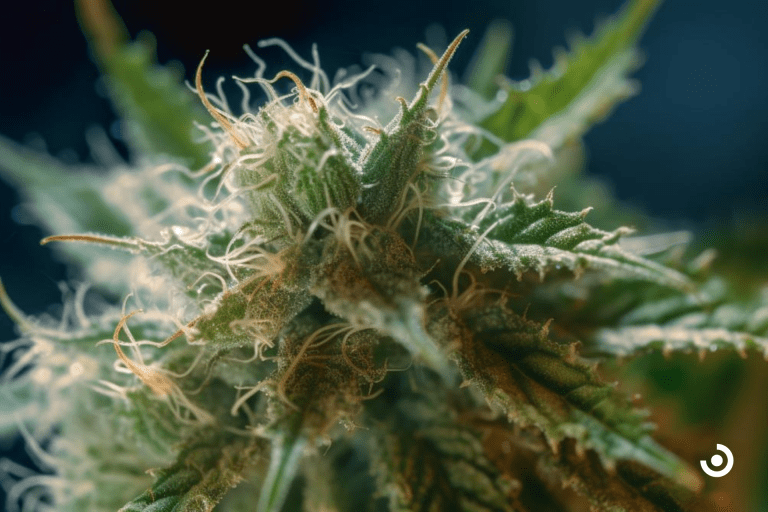Irritable Bowel Syndrome
Irritable bowel syndrome (IBS) is a severe form of gastrointestinal (GI) disorder. IBS symptoms can range from abdominal pain to loss of appetite to fatigue, diarrhea, or constipation, which are caused by chronic inflammation of the GI tract.
Irritable Bowel Syndrome currently has no cure, but physicians and patients are hopeful that cannabis can help control the severe symptoms that accompany the debilitating condition. Medical marijuana is reported to help with nausea, diarrhea, appetite, and quality of life diminished by a patient’s daily living limitations with gastrointestinal issues.
Recent evidence shows that cannabinoids like CBD and CBG can help reduce inflammation, suggesting why users say they can relieve pain. Individual reports claim their personal use of the plant has effectively reduced some of their chronic symptoms, which could be helpful for IBS. In addition to a decrease in pain, it may also bring back appetite and help control weight fluctuations.
Types of Irritable Bowel Syndrome (IBS)
Here are the different types of IBS and how they can affect your digestive system :
IBS with Constipation (IBS-C)
- Patients who have hard stools more than 25% of the time
IBS with Diarrhea (IBS-D)
- Patients who have diarrhea more than 25% of the time
Mixed IBS (IBS-M)
- Patients who have hard and soft stools more than 25% of the time
Post-Diverticulitis IBS
- Occurs after diverticulitis symptoms
- Patients experience left-sided abdominal pain
- Inflamed mass in the left lower abdomen
Post-Infectious IBS
- Occurs after an intestinal infection or virus
Unclassified IBS (IBS-U)
- Characterized by patients who meet the diagnostic criteria of IBS but whose bowel movements fit no other subtypes
Medicinal Cannabis for Irritable Bowel Syndrome (IBS)
The cannabinoids found in the cannabis plant can activate the endocannabinoid system in the human body and may help many chronic issues. Cannabis activates CB1 receptors in the central nervous system and CB2 receptors in organs, muscles, and tissues. Cannabinoids can directly influence our ability to maintain homeostasis.
CB1 receptors are responsible for large and small bowel muscles and digestion in the intestines. Activating the CB2 receptors targets immune cells that can reduce intestinal pain and inflammation. Cannabinoids can even interact with other receptors influencing everyday gastrointestinal tract functions.
Cannabinoids and IBS- Research
Current research shows that more studies are warranted on inflammatory bowel syndrome and the therapeutic benefits of marijuana for modulating pain, controlling nausea, and slowing the intestinal digestion process. Small-scale human and animal studies continue to show promise, and the potential benefits are being researched further.
Timna Naftali conducted a study that followed thirty patients with Crohn’s and recorded their disease severity before and after cannabis use. Researchers found that many users were able to decrease inflammation medications, including steroids. Approximately three-fourths of participants said they experienced a decrease in symptoms and a reduction in daily bowel movements.
Another study discusses the cannabis plant’s potential for helping to relieve digestive inflammation and its anti-inflammatory properties by activating the endocannabinoid system, a fat-based system of self-made neurotransmitters. When CB2 receptors line the intestinal tissue, a P-glycoprotein transmitter will help decrease the body’s inflammatory and autoimmune responses.
Recent studies on the endocannabinoid system suggest that many IBS patients may have clinical endocannabinoid deficiency (CED). An ongoing theory is that these deficiencies could come from genetics, injuries, and diseases.
Research on obese mice has proven a connection between the microbiome, gut, and brain. The microbiome of the small intestine, large intestine, and brain health are all crucial factors for IBS patients. The obese mice given doses of THC had improved microflora in the gut compared to mice who received the placebo.
MMJ Patients with Irritable Bowel Syndrome may see the following benefits:
- Pain management improvement
- Decreased anxiety and depression
- Appetite Increase and regulation
- Reduced need for regular steroid use
- Decrease in diarrhea
The potential risks of using cannabis for Irritable Bowel Syndrome include the following:
- Adverse drug interactions with other medications
- Many health insurance companies don’t cover MMJ
- Increased risk of anxiety with prolonged use
- Mild side effects of THC include: dry mouth, drowsiness, psychoactive effects, nausea, and paranoia
Summary
If you have been looking for a new way to manage common symptoms of IBS or need additional relief on top of other prescribed medications, using medicinal cannabis may be a good option. Finding the correct type of cannabis product and dose may take some time and experimentation.
While there are potential therapeutic benefits, there is little information about the health risks associated with long-term cannabis consumption. We recommend caution and consulting your healthcare provider before starting a new IBS symptom relief treatment.
Last Updated: June 14, 2024
Get Your Medical Card
Connect with a licensed physician online in minutes
Table of Contents
Keep Reading
-
Stay Awake And Lifted: Conquer Weed-induced Fatigue!
Tired of feeling tired after smoking? Discover how to beat weed-induced fatigue and stay energized. Click now for the ultimate solution!
-
Cannabis Infused Sour Mango Gummies Recipe
Take your snacking to new heights with this irresistible recipe for cannabis-infused sour mango gummies. Indulge in the sweet and tangy flavors of these mouthwatering treats that will leave you wanting more. Try our mango weed gummies today and elevate your taste buds!
-
Exploring The Role Of Terpenes In Cannabis For Pain Relief
Are you tired of living with pain? Learn how terpenes in cannabis can provide powerful relief. Click now to uncover nature’s secret weapon for a pain-free life!



